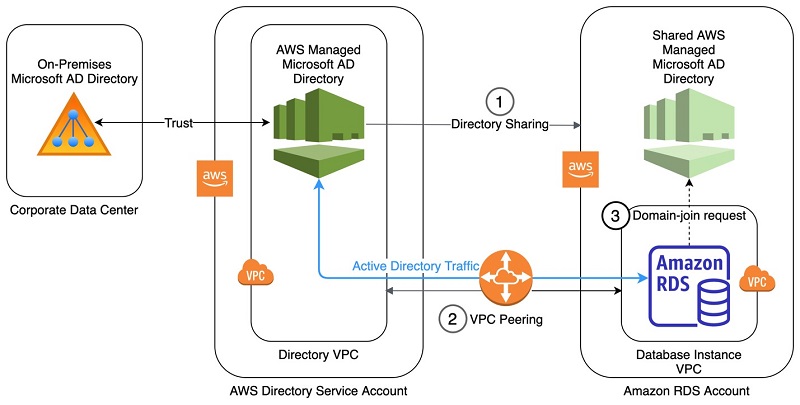AWS Database Blog
Tag: RDS for PostgreSQL
Using logical replication to replicate managed Amazon RDS for PostgreSQL and Amazon Aurora to self-managed PostgreSQL
PostgreSQL version 10 introduced several exciting features and improvements to the existing landscape of PostgreSQL. One such feature is logical replication using a publish and subscribe framework. AWS provides two managed PostgreSQL options: Amazon RDS for PostgreSQL and Amazon Aurora PostgreSQL. This post discusses how to use the existing framework to create a self-managed […]
Migrating PostgreSQL from on-premises or Amazon EC2 to Amazon RDS using logical replication
PostgreSQL is one of the most advanced popular open-source relational database systems. With more than 30 years of development work, PostgreSQL has proven to be a highly reliable and robust database that can handle a large number of complicated data workloads. For many, PostgreSQL is the open-source database of choice when migrating from commercial databases […]
Building fast refresh capability in Amazon RDS for PostgreSQL
This post is a guest post by CDL. In their own words, CDL is a “leading insurtech company based in the UK, featured in the Financial Times Future 100 listing of high-growth UK companies making an impact on their industry. It has a strong track record in the insurance and financial services sectors, with its solutions […]
Converting the SYSDATE function from Oracle to PostgreSQL
July 2023: This post was reviewed for accuracy. An Oracle to PostgreSQL migration in the AWS Cloud can be a complex, multistage process with different technologies and skills involved, starting from the assessment stage to the cutover stage. For more information about the migration process, see Database Migration—What Do You Need to Know Before You […]
PostgreSQL 12 – A deep dive into some new functionality
The PostgreSQL community continues its consistent cadence of yearly major releases with PostgreSQL 12. PostgreSQL 12 introduces features opening up new development opportunities while simplifying the management of some already robust capabilities, such as new ways to query JSON data, enhancements to indexes, and better performance with partitioned tables. In this post, I take a […]
Moving on from Amazon RDS for PostgreSQL Versions 9.4
Historically, the PostgreSQL community releases a new major version yearly, and with that, has a defined end of life (EOL) policy of older major versions. This allows version and upgrade decisions to be made on dates known well into the future. The community EOL policy is to support a major version for 5 years after […]
Joining your Amazon RDS DB instances across accounts to a single shared domain
How can you simplify the setup and maintenance and reduce the costs of AWS Managed Microsoft AD directories, while also strengthen the security of your Amazon Relational Database Service (RDS) for SQL Server DB instances? AWS announced that you can now join your Amazon RDS for SQL Server DB instances deployed across multiple AWS accounts […]




